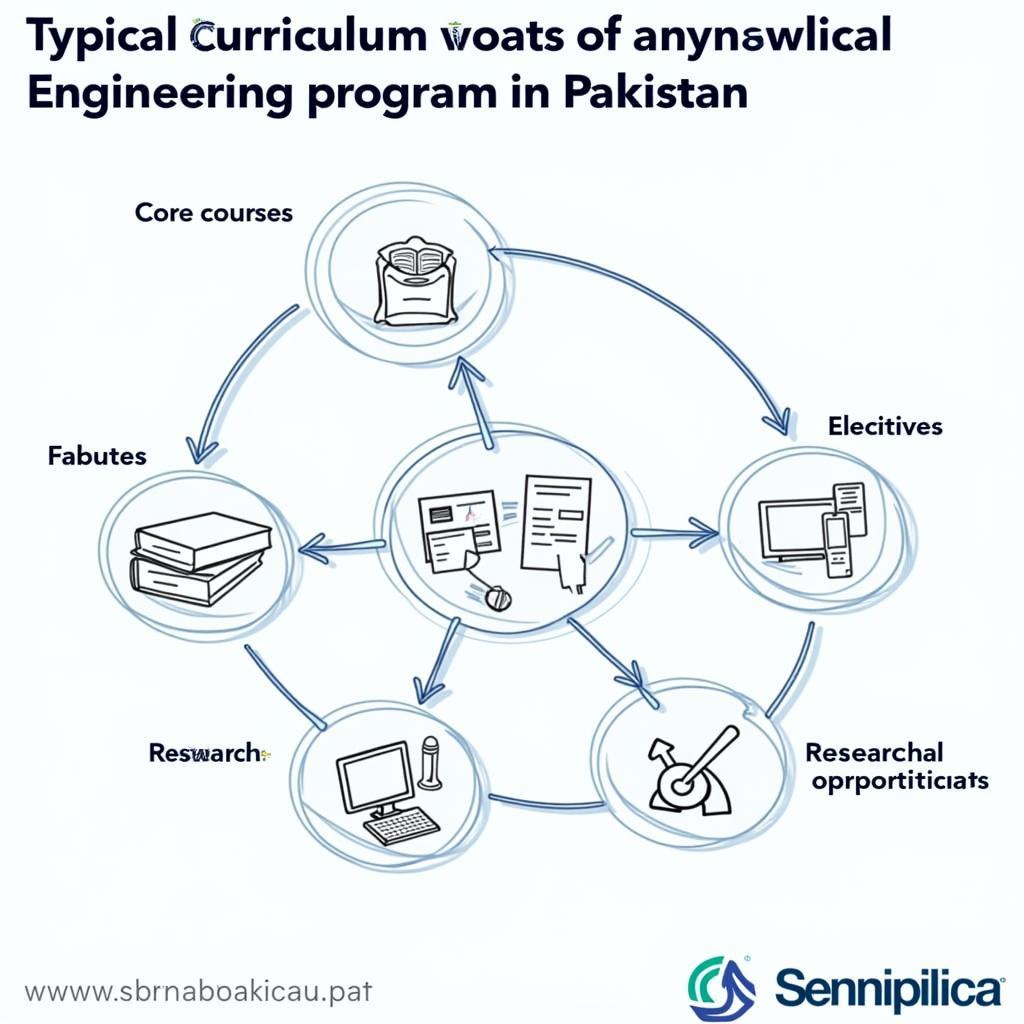Biomedical Engineering Universities In Pakistan offer exciting opportunities for students passionate about healthcare and technology. This burgeoning field combines engineering principles with medical and biological sciences to design and develop innovative solutions for improving human health. This article explores the top biomedical engineering universities in Pakistan, admission requirements, career prospects, and more.
Exploring Top Biomedical Engineering Universities in Pakistan
Pakistan has witnessed significant growth in biomedical engineering programs, with several universities offering specialized degrees. Let’s take a closer look at some of the leading institutions:
- National University of Sciences and Technology (NUST): NUST is renowned for its strong engineering programs, including biomedical engineering. The university boasts state-of-the-art facilities and experienced faculty, providing students with a comprehensive education.
- University of Engineering and Technology (UET), Lahore: UET Lahore offers a well-established biomedical engineering program with a focus on research and innovation. The curriculum covers various aspects of biomechanics, biomaterials, and medical instrumentation.
- COMSATS University Islamabad: COMSATS has a dedicated department of biomedical engineering, offering undergraduate and postgraduate programs. The university emphasizes practical training and industry collaborations to prepare students for real-world challenges.
Choosing the right university is a crucial step in your academic journey. Consider factors such as program accreditation, faculty expertise, research opportunities, and available resources when making your decision.
Admission Requirements and Curriculum Overview
What does it take to get into a biomedical engineering program in Pakistan? Most universities require a strong background in science subjects, particularly biology, chemistry, mathematics, and physics. Admission criteria typically involve a combination of academic performance in high school, entrance exams, and sometimes interviews.
admission in biomedical engineering in pakistan
The curriculum of biomedical engineering programs in Pakistan generally covers a broad range of subjects, including:
- Biomechanics: This area focuses on the mechanics of living organisms, including the study of motion, forces, and stresses on the human body.
- Biomaterials: Students learn about the properties and applications of materials used in medical implants and devices.
- Medical Instrumentation: This covers the design and development of medical instruments and equipment used for diagnosis, treatment, and monitoring.
 Biomedical Engineering Curriculum in Pakistan
Biomedical Engineering Curriculum in Pakistan
Career Prospects for Biomedical Engineers in Pakistan
The field of biomedical engineering offers diverse career paths. Graduates can pursue opportunities in:
- Hospitals and Healthcare Facilities: Biomedical engineers play a vital role in maintaining and operating medical equipment, ensuring patient safety and effective healthcare delivery.
- Research and Development: Many biomedical engineers contribute to advancements in medical technology through research and development in universities, government agencies, and private companies.
- Medical Device Industry: The medical device industry offers opportunities for designing, developing, and manufacturing innovative medical products.
Dr. Ayesha Khan, a leading biomedical engineer in Pakistan, shares her perspective: “Biomedical engineering is a dynamic and rewarding field with immense potential in Pakistan. The growing healthcare sector and increasing demand for advanced medical technologies create exciting opportunities for skilled professionals.”
What are the future trends in Biomedical Engineering in Pakistan?
The future of biomedical engineering in Pakistan is promising. With advancements in areas like artificial intelligence, nanotechnology, and 3D printing, the field is poised for significant growth. These technologies are paving the way for personalized medicine, advanced diagnostics, and innovative therapeutic approaches.
bs applied biosciences scope in pakistan
Professor Imran Ali, a seasoned academic in the field, adds, “Pakistan has a pool of talented young individuals who can contribute significantly to the growth of biomedical engineering. Investing in research and development, coupled with fostering collaborations between academia and industry, is crucial for realizing the full potential of this field.”
Conclusion
Biomedical engineering universities in Pakistan offer a pathway to a rewarding career at the intersection of healthcare and technology. By choosing the right program and dedicating yourself to your studies, you can contribute to improving human health and making a real difference in the lives of others. Explore the various options available, research the curriculum and admission requirements, and embark on a journey to a fulfilling future in biomedical engineering.
FAQs
- What is the typical duration of a biomedical engineering undergraduate program in Pakistan? (Typically 4 years)
- Are there scholarship opportunities available for biomedical engineering students? (Yes, various scholarships are offered by universities and government organizations.)
- What are the key skills required for a successful biomedical engineer? (Problem-solving skills, analytical thinking, strong communication skills, and a passion for healthcare.)
- What is the average salary for a biomedical engineer in Pakistan? (Salaries vary depending on experience and position, but entry-level positions typically start around PKR 50,000-70,000 per month.)
- What are some of the challenges faced by biomedical engineers in Pakistan? (Limited resources, funding constraints, and the need for greater industry collaboration are some of the challenges.)
- How can I prepare for a career in biomedical engineering while still in high school? (Focus on science and mathematics subjects, participate in science competitions, and explore online resources related to biomedical engineering.)
- What are some ethical considerations in the field of biomedical engineering? (Patient safety, data privacy, and responsible use of technology are some important ethical considerations.)
Common Scenarios and Questions:
- Scenario: A student is interested in pursuing biomedical engineering but is unsure about the career prospects. Question: What are the job opportunities after graduating with a biomedical engineering degree in Pakistan?
- Scenario: A parent wants to know the best universities for biomedical engineering in Pakistan. Question: Which universities have the best facilities and faculty for biomedical engineering?
- Scenario: A high school student is curious about the curriculum of a biomedical engineering program. Question: What subjects are covered in a typical biomedical engineering degree program?
Related Articles and Further Exploration:
You might also be interested in exploring related articles on our website, such as:
Need Help?
For further assistance and inquiries, please contact us:
Phone: +923337849799
Email: [email protected]
Address: Dera Ghazi Khan Rd, Rakhni, Barkhan, Balochistan, Pakistan.
Our customer support team is available 24/7 to answer your questions.